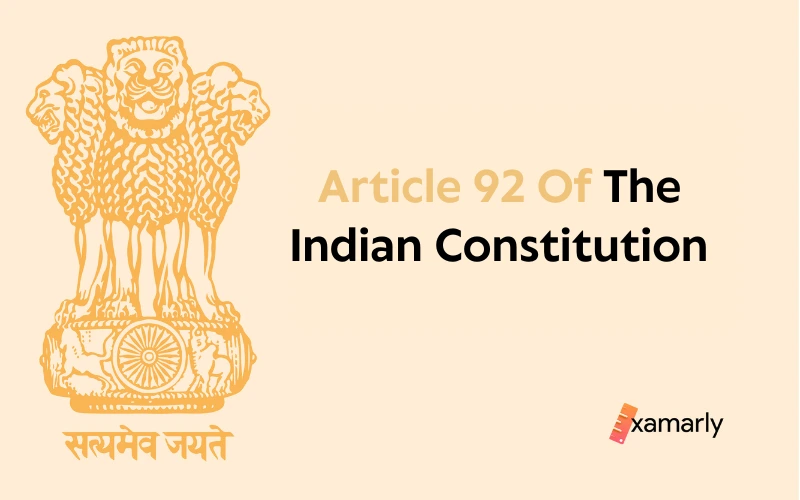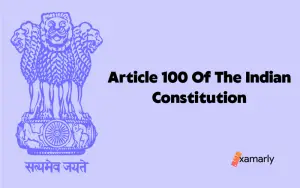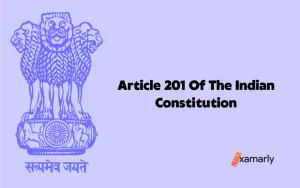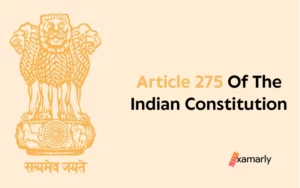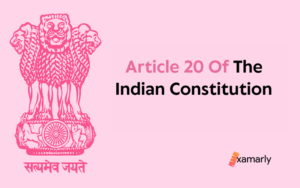The Chairman or Deputy Chairman may not preside while a resolution to remove him from office is being considered, according to Article 92 of the Indian Constitution.
Article 92 is mentioned in Part V (The Union) of the constitution.
Article 92 Of The Indian Constitution
- While a resolution to remove the Vice-President from office is being discussed at a Council of States meeting, the Chairman shall not preside at that meeting, and the Deputy Chairman shall not preside at any meeting during which a resolution to remove the Deputy Chairman from his office is being discussed, even if he is present. Every such sitting shall be subject to the provisions of article 91(2) in the same manner as a sitting from which the Chairman or, where applicable, the Deputy Chairman is not present.
- While any resolution for the removal of Vice- President from office is being discussed in the Council, the Chairman shall have the right to voice and else partake in the Rajya Sabha’s proceedings. However, despite anything in article 100 of the constitution, the Chairman shall not have the power to vote at all during such proceedings on any topic, including the resolution for the removal of the Vice-President from office.
Constituent Assembly Debate
On May 19, 1949, the draft of Article 75-A was discussed. It wasn’t included in the 1948 Draft Constitution at the outset.
It was put forth as an amendment by the Drafting Committee.
The Council of State’s Chairman and Deputy Chairman were forbidden from presiding over meetings when a resolution calling for their dismissal was being discussed.
A member felt that the Draft Article left a gap that needed to be filled: while it forbade the Chairman and Deputy Chairman from presiding over a meeting that dealt with their removal, it made no provision for a different member to preside at such meetings.
The Draft Article’s justification was provided by the Chairman of the Drafting Committee.
The Deputy Chairman would preside if the Chairman of the Upper House of Parliament was indicted on grounds for dismissal, and vice versa.
The Council’s rules of procedure will be followed and a member will be chosen to preside if the Chairman or Deputy Chairman is not present or are unable to do so.
On May 19, 1949, the Constituent Assembly passed Article 92 of the Indian Constitution with no changes.
For Further Readings:
| Article 91 Of The Indian Constitution | Article 98 Of The Indian Constitution |
| Article 99 Of The Indian Constitution | Advisory Jurisdiction Of Supreme Court |
Conclusion
All references in these rules to the Chairman are considered to relate to any such person who is so presiding in such circumstances, whether it be the Deputy Chairman or another member who is entitled to preside over a Council meeting in accordance with the Constitution or these rules.
Consequently, we can draw the conclusion that the Deputy Chairman is crucial to the operation of the Indian Parliament.
FAQs
What Is Article 91(2)?
When the Chairman is away from a Council of States meeting, the Deputy Chairman, or, if he is not present as well, the person the rules of procedure for the Council may appoint, or, if such people are also not present, the other person the Council may select, shall preside over the meeting.


